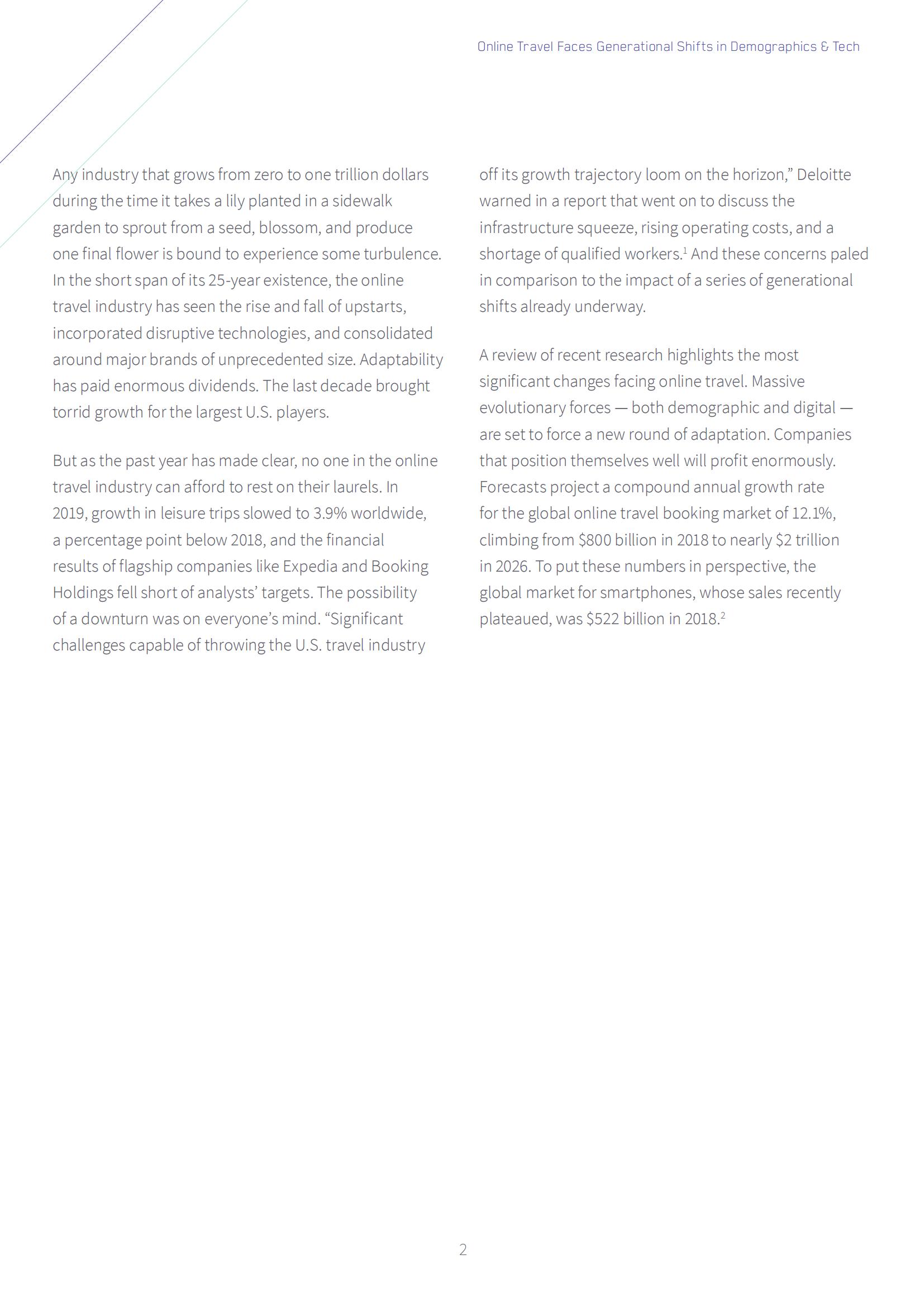Any industry that grows from zero to one trilion dollarsduring the time it takes a lily planted in a sidewalkgarden to sprout from a seed, blossom, and produceone final flower is bound to experience some turbulence.In the short span of its 25-year existence, the onlinetravel industry has seen the rise and fall of upstarts,incorporated disruptive technologies, and consolidatedaround major brands of unprecedented size. Adaptabilityhas paid enormous dividends. The last decade broughttorrid growth for the largest U.S. players.
But as the past year has made clear, no one in the onlinetravel industry can afford to rest on their laurels. In
2019, growth in leisure trips slowed to 3.9% worldwide,a percentage point below 2018, and the financial
results of flagship companies like Expedia and BookingHoldings fell short of analysts’targets. The possibilityof a downturn was on everyone’s mind.”Significantchallenges capable of throwing the U.S. travel industry
off its growth trajectory loom on the horizon,” Deloitte
warned in a report that went on to discuss the
infrastructure squeeze, rising operating costs, and a
shortage of qualified workers.! And these concerns paledin comparison to the impact of a series of generationalshifts already underway.
Areview of recent research highlights the mostsignificant changes facing online travel. Massive
evolutionary forces -both demographic and digital-are set to force a new round of adaptation. Companiesthat position themselves well will profit enormously.Forecasts project a compound annual growth ratefor the global online travel booking market of 12.1%,dlimbing from $800 billion in 2018 to nearly $2 trillion
in 2026. To put these numbers in perspective, theglobal market for smartphones, whose sales recently
plateaued, was $522 billion in 2018.2



本文来自知之小站
报告已上传知识星球,微信扫码加入立享4万+深度报告下载及1年更新。3天内不满意退出星球款项原路退回,欢迎试用。到期续费仅需5折
(如无法加入或其他事宜可联系zzxz_88@163.com)
